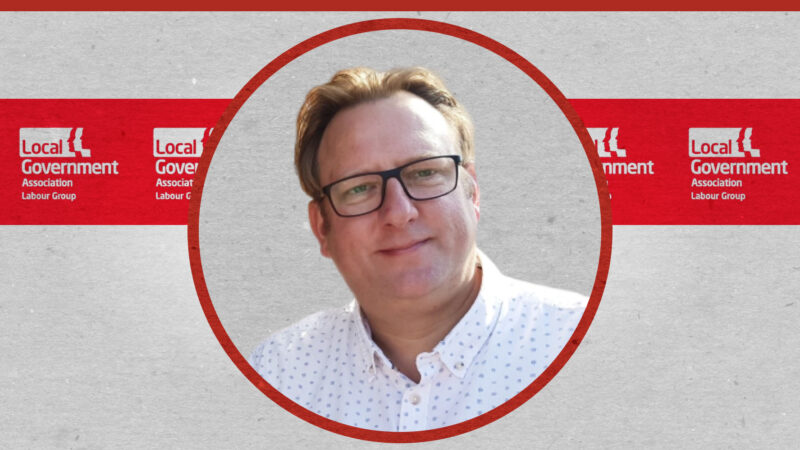
“There is no limit to what you can accomplish as long as you do not care who gets the credit.” This is a well-known quote, variations of which are ironically credited to many different people. It might best describe the attitude of Labour councils, though, who demonstrate an admirable willingness to share good ideas amongst themselves.
Local government is brilliant at sharing best practice and innovation – we get a real kick out of sharing our success stories. The LGA Labour climate emergency website is a classic example of how Labour councils and councillors are keen to share their responses to help Labour in local government to deliver on this agenda here and now, rather than waiting for Westminster politicians to wake up and smell the coffee.
This was backed up by the first LGA Labour climate emergency conference last month, which was probably the best single-issue event I’ve attended in 20 years as a councillor. It showcased what Labour councils of all shapes and sizes – districts, towns, cities, metros or boroughs – are doing to respond to the climate emergency. It’s clear that Labour councillors are successfully setting the policy agenda on this issue, as well as other emerging agendas.
Even as I write this article, I’m living the action of sharing best practise and innovation. I’m on my way to Bath for my final gig (sold out, apparently!) of my 12-month tour of the UK and Ireland. It has seen me present to councillors, council officers and others in Jersey, Dublin, Greater Manchester, West Yorkshire, Oxford, Bristol and London, on how we in Waltham Forest have successfully delivered our radical, ground breaking and often controversial ‘mini Holland’ programme of walking and cycling infrastructure. We have also hosted tours from a huge number of councils from across the UK in Waltham Forest.
Labour in local government has, for the past 20 years or so, been very successful in establishing a process of sector-led improvement or more simply put, helping each other to survive. Through peer reviews, peer mentoring, and the sharing of innovation and best practice, Labour councils prove their willingness to support each other to do better, be bolder, and to succeed. Labour councillors have no time to navel-gaze – we have to work within the rules of the game that we have been handed, because millions of people rely on our leadership and the services that we have direct and in-direct responsibility for.
Peer reviews – which are not inspections – are when a council invites a team of experienced councillors and council officers from different councils to visit for a short period. Through workshops, focus groups, digesting and reviewing reports and publications, and in conversations with key people, the team start to build a picture of the organisation, the place, or particular council service. The team help provide an independent assessment that the council can then use to celebrate its strengths and develop a response to its weaknesses. This process helps some councils make the difficult decisions they need to make in key service areas to improve those services for their residents, and often empowers the council to identify ways in which to move forward.
Peer mentoring – often known as the ‘phone a friend’ option – sees councillors with a new role, or a tricky issue to grapple with, paired up with a councillor who has already lived through a similar challenge and has bought the T-shirt. Mentoring is normally, but not exclusively, given to people new into a role – leaders, cabinet members, chairs of committees etc – in order to help them get a sense of the role, the responsibilities and the expectations that will be placed on them. It normally takes the form of being at the end of the phone or meeting up, as well as visits to places where similar challenges have been overcome with positive outcomes.
Because we are so good at supporting each other in Labour local government, sharing ideas and innovation, we are in a strong place not just to continue to influence the traditional local government agenda, but also responses to wider societal, economic and community challenges. We are uniquely placed to develop, test out and deliver new Labour policies and approaches, as well as having opportunities to challenge Westminster government and politicians. We are Labour in government. Delivering on our values and beliefs – learning, sharing and delivering day-in and day-out.




More from LabourList
Tom Belger column: ‘Why is Labour making migrant exploitation easier?’
Ashley Dalton resigns as health minister for cancer treatment
Paul Nowak column: ‘Labour must focus on the basics’